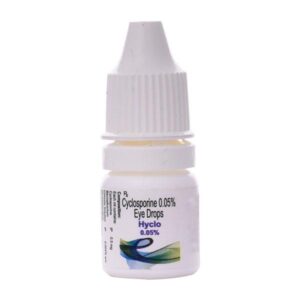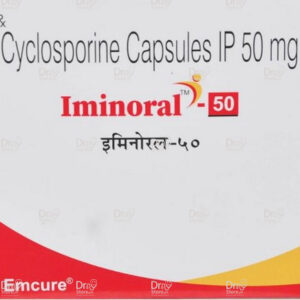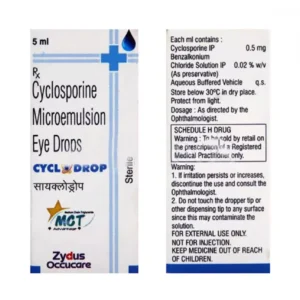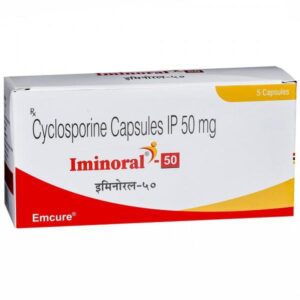CYCLOSPORINE
CYCLOSPORINE: Cyclosporine is a medication used to suppress the immune system in order to prevent organ rejection after transplantation. It is also used to treat certain autoimmune diseases like rheumatoid arthritis, psoriasis, and eczema.
The mechanism of action of cyclosporine involves inhibiting the activity of T-lymphocytes, a type of white blood cell that plays a crucial role in the immune response. By suppressing T-cell activation and cytokine production, cyclosporine prevents the immune system from attacking transplanted organs or causing inflammation in autoimmune diseases.
The dose of cyclosporine varies depending on the indication and the patient’s weight. For organ transplantation, the initial dose typically ranges from 8-15 mg/kg/day, divided into two doses. The maintenance dose is usually in the range of 3-5 mg/kg/day. For autoimmune diseases, the recommended dose may be lower, starting at around 2.5 mg/kg/day and gradually increasing if needed.
As with any medication, cyclosporine can have side effects. Common side effects include high blood pressure, kidney problems, increased susceptibility to infections, tremors, and an increased risk of certain types of cancer. It may also cause gastrointestinal disturbances such as nausea, vomiting, diarrhea, or abdominal pain. Other less common side effects include headache, dizziness, and changes in blood glucose levels.
Cyclosporine interacts with various other medications, so it is important to inform your healthcare provider about any other drugs you are taking to avoid potential drug interactions or adverse effects.
It is crucial to take cyclosporine exactly as prescribed, at the same time each day, and to undergo regular monitoring of blood pressure, kidney function, and drug levels to ensure its safe and effective use.








